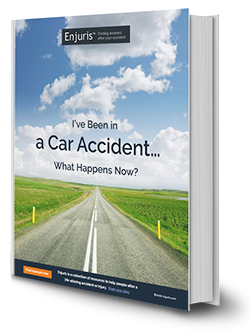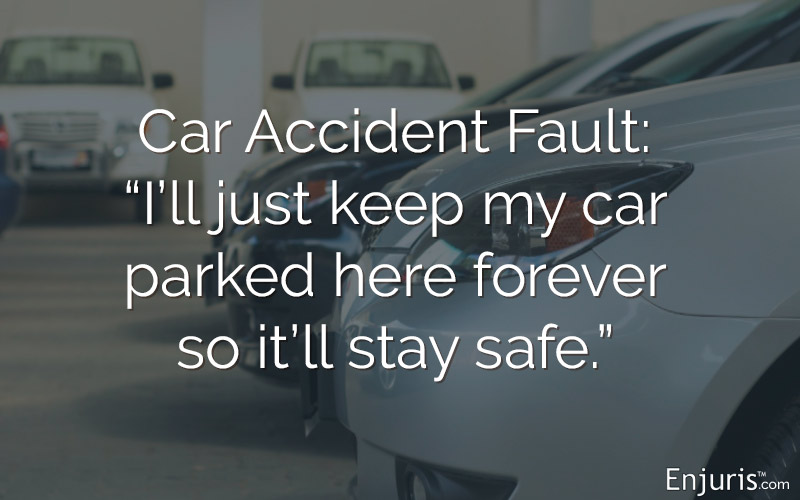Here’s what you need to know about Iowa laws and insurance requirements
The Hawkeye State has the reputation of being the food capital of the world. It’s not New York, San Francisco or Paris—but it’s proud to be a hub of diverse agricultural production and is proud of its dishes like chili with cinnamon rolls, taco pizza, and Scotcheroos.
The state is also known for being a top pork and corn producer, and for being the leading U.S. producer of ethanol fuel.
The Iowa political caucuses get a lot of attention in election years, and Iowa is the birthplace of 31st president Herbert Hoover and actor Ashton Kutcher.
But whether you live in Iowa and work in one of the biggest industries—agricultural chemicals, food processing, or others—or a smaller one, or you enjoy tourism in places like Des Moines or Cedar Rapids, or you’re an occasional visitor for other reasons, you likely spend time on one or more of Iowa’s major highways: I-29 from Hamburg to Sioux City; I-35 from Lamoni to Albert Lea, Minnesota; I-74 from Davenport to Bettendorf; or I-80 from Council Bluffs to LeClaire.
Regardless of the why, the how is important—particularly when it comes to Iowa traffic laws. Here’s what you need to know about traffic laws, car accidents, and car insurance in Iowa.
Iowa is an at-fault car accident state
At its most basic, it’s important to understand how damages (the money you can receive after an accident) work.
Personal injury (which includes car accidents) is based on the concept that the plaintiff (injured person) is entitled to be made financially whole. The plaintiff should be compensated so that they are restored to the financial condition they would be in if the accident had never happened.
How do they become restored to their previous financial condition?
Really, it’s just a legal term to say that if you didn’t cause the accident, you shouldn’t lose money from the accident.
If you were injured in an Iowa car accident that was not your fault, the at-fault driver is responsible for paying your bills associated with your medical treatment and property damage.
There are three ways to recover compensation:
- File a claim against the at-fault party’s insurance company;
- File a claim with your own insurance company and it will subrogate the claim to the other party’s insurance (in other words, you deal with your own insurance and they make a third-party claim against the other driver’s insurance); or
- File a personal injury lawsuit against the at-fault party.
A personal injury lawsuit is your last resort. This would only happen if the relevant insurance policies do not cover your claims, or if the amount of your claim exceeds the amount of the policies. In other words, a lawsuit typically is the remedy only if a resolution can’t be reached through insurance coverage.
Iowa insurance liability coverage requirements
Every Iowa driver is required to have liability insurance to cover property damage, bodily injury and death.
A driver must have coverage for:
- $15,000 for property damage per accident
- $20,000 for bodily injury and death per person
- $40,000 for total bodily injury or death liability per accident
If your damages from an Iowa car accident exceed the amount of the at-fault driver’s policy, you would then turn to your own insurance policy to cover the difference. If your expenses are still not fully covered, you can file a personal injury lawsuit against the at-fault driver.
What do I need to do to make an insurance claim or file a lawsuit?
The burden is on you to prove that you deserve compensation.
You need to prove two things for an insurance settlement:
- Causation
- Injuries
The records from the accident (police report, witness statements, etc.) need to show that the at-fault driver caused the accident and that the accident caused your injuries.
For example, if you had a neck injury from a work-related accident three years ago and claim a neck injury from the car accident, you’ll need to show that the treatment required today is directly related to the car accident and not a lingering issue from a previous incident.
You will need to show the extent of your injuries so the insurance company knows how much medical treatment it needs to cover—not more than what’s necessary, but without selling yourself short, either.
However, if you need to file a lawsuit, the burden of proof is different. A personal injury lawsuit requires a finding of negligence. In other words, you’d have to prove that the at-fault driver not only caused the accident but did so because they were careless.
If this carelessness falls below a legally recognized standard, the person’s action is considered “negligent,” and the person is liable for your damages.
Negligence is the failure to exercise the appropriate level of care.
Common examples of negligence in a car accident scenario include a driver who runs a red light, speeding, driving while distracted, a poor lane change, or even a lapse in judgment estimating an oncoming vehicle’s speed before making a turn.
Every driver has a duty of care to every other road user. To prove negligence, your claim must meet the following elements:
- Duty, which means that there was some relationship between the plaintiff and defendant (which can exist between people who’ve never met). The duty could simply be that the defendant was required to avoid harm to the plaintiff as another driver, pedestrian, or bicyclist sharing the road.
- Breach, for example, by speeding, driving recklessly, or using poor judgment, the person did not take another person’s well-being into consideration and that constitutes a breach of their duty.
- Causation, which means the accident directly caused or resulted in the plaintiff’s injuries.
- Injury, which simply means that you suffered a physical injury that required medical treatment.
- Damages, or the expenses related to the accident. In other words, the accident cost you money.
Any accident, even a minor one, is an inconvenience. You could be without your car for days or weeks while it’s in the shop, it might make you miss an appointment or be late to your destination, and even the phone calls to the insurance company can be time-consuming and frustrating. But anger, frustration, and inconvenience aren’t reasons to file a lawsuit, annoying as they might be.
You must have suffered an injury that cost money for medical treatment or lost wages, or property damage, to file an Iowa car accident lawsuit.
Iowa modified comparative fault rule
Iowa follows a modified comparative fault system, otherwise known as the 51% rule.
Aside from Iowa being an at-fault state, this rule is another reason why it’s crucial to determine exactly how the accident happened.
You must be less than 51% at fault in order to recover any damages.
As the insurance companies or the court review evidence, they’ll assign a percentage of liability to each party. Often, it’s determined that even though the plaintiff didn’t cause an accident, there is something they might have done differently that could have avoided a crash—so they could be assigned some percent of the liability.
For instance, if you’re found 10% liable, your damage award will be reduced by 10%.
Iowa car accident statute of limitations
The statute of limitations is the amount of time you have to file a lawsuit. If you don’t file a lawsuit by the deadline, the court can refuse to hear your claim.
Iowa law provides two years from the date of the accident for a victim to file a personal injury lawsuit. The same applies for a wrongful death lawsuit. However, the statute of limitations is five years for a property damage lawsuit.
When do you need an Iowa car accident lawyer?
As with many legal issues, it depends.
If liability is clear and uncontested by either party, and if your injuries are covered within the limits of the at-fault driver’s insurance policy, you might be able to reach an insurance settlement quickly and fairly.
But if there are questions as to each party’s degree of liability, the actual costs associated with your losses, or the extent of your injuries, you might need a lawyer to assist in minimizing your liability and negotiating a settlement. Also, if your injuries are severe and require ongoing or future treatment, you want to know that your future costs will be covered.
Don’t shortchange yourself by taking a lowball offer or accepting a fast settlement that might not cover you in the future—once you accept a settlement offer, there’s no going back for more.
You can seek the guidance of a qualified, experienced Iowa car accident lawyer in order to ensure that you receive the compensation you deserve after a crash.
Did you know that car accident law varies by state?
Hurt in a car crash? You may find these resources helpful
Need a lawyer?
What does an injury lawyer do?
A personal injury lawyer helps individuals who have sustained injuries in accidents to recover financial compensation. These funds are often needed to pay for medical treatment, make up for lost wages and provide compensation for injuries suffered. Sometimes a case that seems simple at first may become more complicated. In these cases, consider hiring an experienced personal injury lawyer. Read more
Common car accidents





















